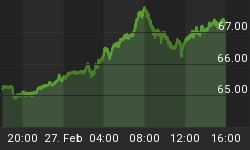U.S. households owe some $25 billion in capital gains taxes for their cryptocurrency holdings, with analysts saying that fact could result in another big sell-off before the mid-April tax filing deadline as holders shift crypto into U.S. dollars.
Fundstrat Global Advisors’ head of research, Thomas Lee, says that in total, capital gains taxes for crypto for the 2017 income tax year should hit a record $168 billion, up from $137 billion in receipts the year before.
So if anyone out there still thinks the IRS doesn’t care about taxing your crypto—think again. When $168 billion is at stake, Uncle Sam is all over it. And so far, Uncle Sam hasn’t seen tax receipts that come close to aligning with what seems to be a cryptocurrency mania.
The IRS treats "virtual currency" as property, meaning transactions are taxed. And a recent IRS memo highlights the “inherently pseudo-anonymous aspect” of cryptocurrency transactions, which the organization believes may lead some taxpayers to be tempted to hide taxable income from the tax authorities.
“Those who fail to report their crypto earnings can be liable for penalties and interest, and in more extreme situations... criminal prosecution,” according to the memo.
So far, only 0.04 percent of citizens who have filed federal tax returns this year to date via personal finance service Credit Karma reported cryptocurrency transactions to the IRS. This is despite nearly 57 percent of the 2000 Americans surveyed last month saying they had seen capital gains from cryptocurrencies.
There’s been a lot of talk about whether crypto is even ‘real’, but when the IRS starts eyeing capital gains, the existential question is largely answered. Crypto is real, and the IRS is going to start coming after people.
“People are making real money now. So the IRS isn’t stupid,” Mike Novogratz, crypto investor and billionaire hedge fund manager said last year.
The anonymous nature of crypto and its origins has had many thinking it was going to be a free ride, but that ride is over. Last year, after only some 800 people reported Bitcoin gains or losses in 2015, the IRS sued the crypto exchange Coinbase for access to customer files. Then, in November, a federal court ordered the exchange to turn over identifying records for all users. Related: Citizenship For Sale: The Business Of Patriotism
In February, Coinbase announced that it would give the IRS the names, addresses and transaction data of more than 13,000 users who did more than $20,000 in Bitcoin business between 2013 and 2015.
And crypto miners aren’t immune, either. They’re also required to pay hefty self-employment taxes because mining is essentially the same as owning a small business.
The good news is that Fundstrat doesn’t expect the crypto sell-off to continue after the tax filing deadline, clearing the way for potential recovery.
Last year, bitcoin soared more than 13 times in price and hit an all-time high above $19,000 in mid-December. So far this year, Bitcoin has more than half of its value in the first quarter.
In terms of market value, virtual currencies grew $590 billion in 2017, compared with an $11-billion increase in 2016, with an estimated 30 percent of crypto holders from the U.S.
Regulatory issues the world over may continue to bite Bitcoin and its counterparts, but if Fundstrat is right, part of the U.S. sell-off at least may be staunched at the close of tax season.
By Michael Kern for Safehaven.com
More Top Reads From Safehaven.com:
















